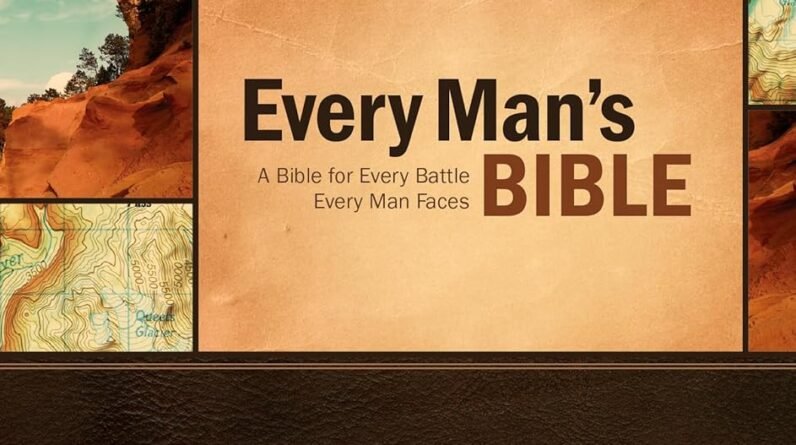Shaken Bible Study: Discovering Your True Identity in the Midst of Life’s Storms, Paperback – December 20, 2016, guides you through Scripture so you can stand firm in your identity amid life’s fiercest trials.

Shaken Bible Study: Discovering Your True Identity in the Midst of Life’s Storms — Paperback (December 20, 2016)
You’re holding in your hands the kind of Bible study that meets you where you are: in the middle of doubts, questions, and upheaval. Shaken Bible Study: Discovering Your True Identity in the Midst of Life’s Storms (Paperback – December 20, 2016) is aimed at helping you explore what it means to be defined by God rather than by life’s shifting circumstances. Whether you’ve been a believer for decades or you’re curious about how faith maps onto real-world struggles, this study is designed to walk you step-by-step into a more secure, scripture-rooted sense of identity. In this article, you’ll find a thorough look at what the study covers, how you can use it personally and in groups, and practical tips that help the material come alive for you and the people you care about.
What this Bible study is about
You’ll find that the core premise of this study is simple but powerful: storms—literal or figurative—are inevitable, but how you understand who you are in Christ changes how you weather them. The study takes biblical narratives, reflective questions, and practical exercises and weaves them together so you can examine the stories you tell about yourself. You’ll be encouraged to identify faulty identity stories, test them against Scripture, and begin to rehearse truths that reshape your everyday life. It’s not only about knowledge; it’s about transformation—learning to stand firm and move forward with confidence that you are known, loved, and appointed for purpose.
Why this study matters to you
If you’ve ever felt unmoored after a job loss, a relationship fracture, a health scare, or a spiritual dry spell, this study covers ground that feels urgent and personal. You’ll be invited to explore how external events have influenced your self-understanding and to practice anchoring your identity in God’s character instead. This matters because the way you see yourself affects your choices, your relationships, and your spiritual growth. By learning to view yourself through God’s lens, you’ll likely experience renewed freedom, clarity, and courage to face future storms without losing your foundation. The encouragement here is practical and pastoral: it meets the ache and points you toward steadying truths.
How the study is structured
You’ll notice that the structure of the study is intentionally accessible. Sessions are typically built around a short Scripture passage, a set of reflective questions, a personal application assignment, and a suggested group discussion format. Each study session aims to take you from head knowledge to heart conviction through guided reflection, journaling prompts, and action steps. The pacing is flexible—use one session per week in a group setting or spend a week or two on each session during your personal study. You’ll find that this structure makes it simple to integrate spiritual formation into your regular rhythm without feeling rushed or overwhelmed.
Core principles you’ll encounter
As you progress, certain themes will rise to the surface repeatedly—truths meant to reorient your thinking. You’ll be guided to understand that identity is given by relationship with God, that trials are sometimes the soil for spiritual growth, and that community isn’t optional when you’re trying to reframe your life in Christ. These core principles aren’t abstract theology; they are usable lenses that you’ll learn to apply when your circumstances threaten to define you. By repeatedly returning to these principles, you’ll begin to replace reactive patterns with intentional, faith-filled responses.
Identity in Christ
You’ll be introduced to practical ways to affirm your identity in Christ rather than in achievements, roles, or labels that have been assigned by others or yourself. The study unpacks biblical statements about who believers are—chosen, forgiven, beloved, and called—and encourages you to memorize, meditate on, and live out these truths. You’ll practice replacing negative self-talk with Scripture-based affirmations and explore how these changes affect your emotional health and decision-making. This focus is empowering because it moves identity from a shifting internal debate to a fixed external reality rooted in God’s promises.
Trusting God in the Storms
You’ll explore biblical stories of people who faced severe storms—literal and figurative—and learn how they navigated fear, uncertainty, and disappointment. The study helps you unpack what trust looks like in practical terms: honest prayer, persistent hope, patient waiting, and courageous obedience even when outcomes are unclear. You’ll be encouraged to rehearse these rhythms in your own life, practicing trust in small ways that prepare you for bigger tests. Trust here is not naive optimism but a steady reliance on God’s faithfulness rooted in His character and past acts on behalf of His people.
Emotional and Spiritual Resilience
You’ll work on building resilience that’s both emotional and spiritual. Emotional resilience includes naming your feelings, processing grief or anger, and learning healthy ways to respond under pressure. Spiritual resilience means cultivating disciplines like prayer, Scripture reading, and community support that sustain you over time. The study offers exercises to help you notice patterns that sap your resilience—like isolation or perfectionism—and replace them with practices that strengthen you. As you build these muscles, you’ll find yourself less reactive and more intentional in responding to life’s ups and downs.
Community, Vulnerability, and Accountability
You’ll be reminded that transformation rarely happens in isolation. The study encourages vulnerability in safe settings—sharing your struggles, confessing doubts, and receiving encouragement. When you practice vulnerability with trusted people, you form a network of accountability that keeps your identity anchored in truth rather than in shame or performance. You’ll learn conversation starters and questions designed to deepen group connection, create space for confession, and provide practical help. Embracing community does not make you weak; it gives you the support you need to stand firm.
Practical Application and Next Steps
You’ll be pushed toward tangible next steps at the end of each session—things you can actually do to live out what you’re learning. These might include specific prayer practices, journaling prompts, acts of service, or conversation starters to use with loved ones. The application component makes the study action-oriented: it’s less about checking boxes and more about shaping habits. By consistently following through on these suggested actions, you’ll begin to notice measurable change in your thoughts, relationships, and spiritual rhythms.
Who should use this study
You might be wondering whether this study is right for you. It’s designed for a wide audience: individuals longing for deeper spiritual clarity, small groups looking for a meaningful study that fosters authentic conversation, and leaders who want a framework to help people respond to life’s crises biblically. It’s especially helpful if you’re in a season of transition—grief, career change, recovery, or spiritual reorientation. If you want a study that balances theological depth with practical, everyday application, this will likely fit you well.
How to use the study for personal growth
If you decide to use the study on your own, you’ll benefit from creating a consistent rhythm. Set aside a regular time each day or several times per week to read the Scripture passages, work through the reflection questions, and complete the practical assignments. Keep a journal to track insights and progress; you’ll be amazed at how patterns reveal themselves over time. Personal study gives you freedom to linger on passages that speak to you and to tailor the pace to your life. Make room for prayerful listening—ask God to highlight what you need most and to show you ways to put truth into practice.

How to use the study in a small group
When you use this in a group, you’ll find that the relational dynamics bring added depth. Start your sessions with brief check-ins that allow people to share wins and burdens, then move into Scripture reading and guided discussion. Use the reflection questions to foster honest dialogue rather than debating theology. Your role as a participant is to create a safe and hospitable space—listen more than you talk, ask gentle follow-up questions, and model vulnerability. Groups working through this material can become life-giving communities where identity is reshaped not only by truth but by being seen and loved.
For group leaders and facilitators
If you’re leading a group, you’ll be most effective when you prepare but don’t dominate. Read the session ahead of time, pick two or three key questions that will guide the discussion, and keep an eye on time so everyone gets to speak. Encourage personal application with accountability partners who check in during the week, and be ready to offer resources for people who need deeper pastoral care. Facilitators should prioritize safety: remind participants of confidentiality, model humility, and provide clear next-step options for anyone who needs more support outside the group.
A sample session outline you can follow
You’ll find it helpful to see a sample flow so you can implement the study with confidence. Here’s a compact outline you can adapt to your context:
- Opening prayer and brief check-in to create safety and connection.
- Scripture reading aloud to center the group on the biblical text.
- Guided reflection: 3–4 questions from the study to prompt honest sharing.
- Personal application: assign a short practice or journaling exercise for the week.
- Closing prayer and an invitation for brief one-on-one follow-ups if needed.
This outline keeps the session focused but flexible, leaving room for the Holy Spirit to lead and for relational interactions to deepen the learning.
Resources and materials you’ll want on hand
You’ll want a few simple resources to make the study experience richer. A physical copy of the paperback is helpful for underlining and notes, but a digital version works too. Encourage participants to have a journal or notebook, a Bible (or Bible app), and perhaps a highlighter. If you’re leading a group, consider printouts of the session questions for those who prefer paper. Other optional resources include worship music for opening and closing, short videos or testimonies to supplement topics, and local counseling or pastoral contacts for deeper needs.
Benefits you can expect from doing this study
You’ll likely notice a range of benefits if you commit to the journey. Spiritually, you’ll gain clarity about God’s view of you and learn practices that root your identity in Him. Emotionally, you’ll build resilience and healthier responses to stress and loss. Relationally, you’ll deepen connections with others through vulnerability and mutual support. Practically, you’ll develop habits—prayer rhythms, Scripture engagement, and reflective journaling—that help you continue growing long after the study ends. Most importantly, you’ll begin to experience a steadier inner life, where storms shape you rather than define you.
Potential challenges you might face and how to overcome them
You’ll face some predictable challenges as you work through the material: resistance to vulnerability, impatience for quick results, or discomfort with confronting painful stories. These hurdles are normal. To overcome them, pace yourself and your group well—allow enough time for slower processing, normalize setbacks as part of growth, and anchor discussions in safety and confidentiality. If heavy trauma surfaces, be prepared to refer people to trained counselors or pastoral care. Remember that transformation is often incremental; small faithful steps compound into lasting change.
Frequently asked questions you’ll probably have
You’ll likely have questions as you consider using the study. Is it doctrinally safe? The study roots its identity claims in Scripture and is intended to be broadly accessible across evangelical circles, though you should always preview material to ensure it aligns with your theological convictions. How long does it take? Most groups run a session per week for 6–12 weeks, depending on discussion depth and application pacing. Can you use it with teens? With adaptation for language and cultural references, older teens can benefit from the themes of identity and resilience. What about online groups? Absolutely—virtual formats work well when you prioritize connection through video check-ins and breakout discussions.
How this study compares to other identity-focused studies
You’ll find studies that address identity from various angles—some focus on trauma recovery, others on spiritual disciplines, and still others on apologetics. What sets this study apart is its combined emphasis on immediate pastoral care (navigating storms), theological grounding (biblical identity), and practical outworking (daily applications and community practices). It’s not only for those who are “broken” nor only for those who are already thriving; it intends to be a bridge for a wide range of people who want both comfort and challenge in a balanced way.
Tips for getting the most out of the study
You’ll get more out of the study when you approach it intentionally. Be consistent—small habits repeated are powerful. Pair with an accountability partner who will check in with you about the practical steps you commit to each week. Read the Scripture passages slowly and aloud sometimes; hearing words can unlock fresh insights. Keep a record of prayers and answers—seeing God’s faithfulness in print strengthens trust. And lean into community: invite honest conversation, practice listening without fixing, and resist the urge to rush people through their process.
Stories of transformation you might relate to
You’ll find countless testimonies of people who began this kind of journey feeling anxious, ashamed, or uncertain and left with a clearer self-understanding and stronger faith practices. Maybe you’ll see yourself in someone who discovered they could trust God again after a broken relationship, or in someone who found purpose after a job loss. These stories often share a common thread: small, steady spiritual habits plus honest community made space for healing. As you read or hear these accounts, let them encourage you that change is possible and that you don’t have to navigate your next season alone.
Where to buy and edition notes
You’ll typically find the paperback edition with the December 20, 2016 publication date from major retailers and local Christian bookstores. If you prefer digital formats, check whether an ebook or downloadable leader guide is available from the publisher or online platforms. When purchasing, consider buying copies for your group or church to create a shared learning environment—sometimes the investment in a group set-up is the nudge that gets people to commit and show up.
Wrapping up: final encouragements for your journey
You’re not being asked to become perfect, only to become honest and intentional. This study is an invitation to let truth reform how you see yourself and to practice spiritual habits that sustain you in storms. As you work through the sessions—alone or with others—remember that God’s aim is not to shame you but to restore and re-anchor you in a secure, loving identity. Give yourself grace for the pace of change, lean into community, and keep returning to Scripture as your measuring line. With time and practice, you’ll likely find that storms still come, but you respond from a steadier place.
Disclosure: As an Amazon Associate, I earn from qualifying purchases.







